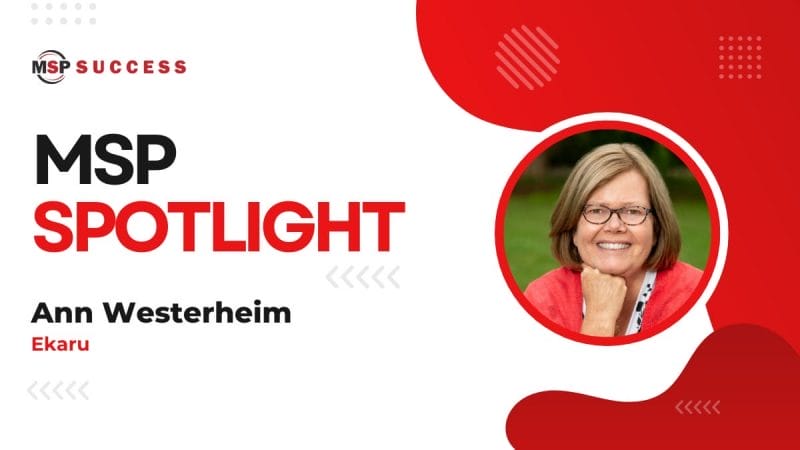How Aaron Nihat Ranked #1 In A Highly Competitive Market In Just 3 Months
In 2017, after 20+ years working in IT for one of the top five law firms in the world, Aaron Nihat decided to hang out a shingle of his own.
Leaving London to move to a smaller region in the Southwest of England, Aaron started Cornwall IT Ltd. To help get his business going, he focused on SEO for his new business website. While he’d gotten into SEO in the late ‘90s, it wasn’t until 2016 that Aaron began studying SEO intensely. Researching it and taking courses, he implemented what he learned on his own website. His work paid off. His site moved up to a number one ranking in the Cornwall area for IT support and services and new leads started flowing in.
“When I started my own business, I didn’t rank at all,” Aaron said. “I went from nowhere to number one on page one for my region. Soon after, I got a call from a dental practice because they found me during a Google Search. They’ve been with me ever since and the only reason is because they found me on page one.”
“The first time you get an email from someone saying, ‘I’ve just come to your site’ and you know they’ve found it through Google, and then you go and see him, and convert that lead to a client. It’s a good feeling.”
Aaron continued receiving a steady flow of leads from his SEO efforts. In March 2020, trying to attract larger clients, Aaron began focusing on SEO in the London market. SEO helps him compete against the larger IT firms too.
“It’s quite difficult to compete in London,” Aaron said. However, despite hundreds of IT companies in London, including IT firms that are much larger than his company, after only three months, Aaron now ranks number one, on page one, for “.” “London IT Support”, this term alone gets 1500 searches a month on Google, Aaron said. “I’m ahead of everyone and I feel quite proud of that.”
Since ranking number one in London, Aaron is landing larger clients too. “Just last week, we had a company in central London with 50 users—they need back up for a massive amount of data,” Aaron said. “We’re close on that one, which will be a big deal for me.”
Averaging at least two new qualified leads per week, sometimes more, Aaron feels that if you aren’t doing SEO you are missing out on a lot of potential business.
“We’re getting regular leads all the time,” Aaron said. “Recently, we had one that found us on page one because they were searching for a new provider due to the fact they were not happy with their current IT provider.”
We asked Aaron to share his SEO tips for getting your website ranking organically on page one.
1. Make your website user-friendly. Your website must prioritize the human user experience over search engines by answering the question that the user is looking for during their search. Make sure your content is relevant and putting your reader first. Create unique and relevant meta descriptions for each page and don’t duplicate content.
2. Ensure your website performs well. Your website must perform well, so monitor your site’s speed and remove anything that is slowing it down. “Your website can’t be slow or have a lot of bulk that will slow it down and interfere with the user experience,” Aaron said.
3. Your website should be readable. Whether it’s a human checking out your website or a search engine robot crawling your site for indexing and ranking purposes, it should be obvious EXACTLY what your website is about. Users should be able to read and understand your website and your URLs. If a human can’t understand it, chances are you’ll confuse search engines as well. “Make sure your page makes sense,” Aaron said. “It must be clear and well-written. If Google notices that people are clicking away from a page quickly, that is a sign that maybe the page doesn’t read well. This can cause Google to rank the page lower.”
4. Structure your website properly. The better your site structure, the better chances you have of ranking higher in the search engines. One of the most overlooked, yet important, aspects of a site’s SEO performance, your website must be well organized and not just loaded with a jumbled, unorganized bunch of pages. Good site structure includes a logical, easy way for users to find what they are looking for and sitelinks that show your site’s main page along with several internal pages. Start with a hierarchy for your website, keeping your main categories between two and seven. Then balance the number of subcategories within each category. Carefully plan your structure and remember, if your site is not structured properly, it will affect your ranking.
5. Beware of promises that sound too good to be true. Aaron says you can’t expect to get good results paying a low price and even if you do get results, they won’t last.“If you’repaying a company a $100 a month, they probably are using illegal ways to get you on to page one,” Aaron said. “While you might see a jump in your rank, Google always checks websites and what people are doing. Once Google finds out that you’ve done something illegal in terms of SEO, they’ll just push you right back down to page 100.”
6. Do keyword research. The first thing you must do is find out what your ideal clients are searching for when they are looking for what your company offers. “Do some research on what people are typing in for your region,” Aaron said. “For example, if someone is searching for an IT company in New York City, do they type in “IT companies in New York” or “IT companies in NYC”?” There are many keyword search tools available including free tools such as Neil Patel’s Ubersuggestand Google’s Keyword Planner.
7. Find out the rules in your region. “There is a balance in using a certain number of words on a particular page,” Aaron said. “Each sector is different. For example, in New York, it might be to use 600 words on a ranking page, but in London, you might be required to use 800 words on the same page because others who are ranking for that word are similar.” Rules can be different in different regions, including knowing how many keywords you need to rank for a certain page and how many words you need in the header. “Check out your competitor’s website and see what they are doing,” Aaron suggested. “Try not to be more extreme than them in the amount of keywords and content you have.”
8. Create different pages for each of your services. Create separate pages for each of the specific services you offer. For example, create a page focused on your VoIP services and a separate page focused on IT Support. This makes it easy for users and search engines to navigate your website and helps them narrow down their choices intuitively, this also makes SEO easier.
9. Consider lesser searched terms. If you are a smaller company in a highly competitive area, you may consider smaller keywords that are searched on as frequently. “If you are a small company, it may be hard to compete against large companies with big budgets invested in SEO,” Aaron said. “It could be worth trying to rank for several keywords that aren’t searched as frequently. Google might just naturally rank you with other similar keywords as well and it still gets you potential business because you are on page one.”
10. Link your social media accounts to your website. “Linking your social media accounts to your website is important too,” Aaron said. “Because Google will search to see if that matches up.” Plus, social media is built for sharing. When people share your content, this gives you more visibility and more of a likelihood that people will link to it, and links are important in SEO ranking.
While there are hundreds of things you can do to optimize your site for SEO, these tips will get you started. Remember that it can take time and won’t happen overnight. A site that has been around for ten years will be more relevant to the search engines than one less than six to 12 months old.
If your site is not starting to move up, review these steps. It could be that you aren’t using the keywords that people are searching on or that the phone number you have listed on your social media account doesn’t match up to the phone number on your website, for example. And finally, stick with it and you’ll be rewarded. “People searching pay attention to the websites that rank organically,” Aaron said. “They may call the one organically ranked on page one because they know Google thinks they should be there. And that could be the big difference in the mindset of a potential customer. They may think that the business with the ad has a big budget and paid to be there whereas your company is there because Google thinks you deserve to be there and that’s why Google is ranking you on page one.”

















